Archive
29 February 2024
Research and drug development platform supported by ERC grant
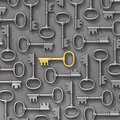
Apart from storing heritable information, DNA can fold into a key that unlocks functions in specific proteins. Such DNA keys, called ‘aptamers’, are highly sought-after as new drugs and tools in biological research. Delft researchers developed a technique to find the right DNA key between the countless different aptamers that exist. The European Research Council has now awarded their idea with a Proof-of-Concept grant.
19 February 2024
Delft researchers take next step towards better batteries with widely available materials
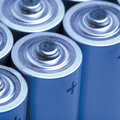
Delft researchers are developing batteries that can charge faster, offer more stable storage and are made from sustainable materials that are widely available. In doing so, they offer a cheaper alternative to lithium-ion batteries that consist of rare materials and have a high CO2 footprint.
15 February 2024
A new design for quantum simulators, a specific type of quantum computer
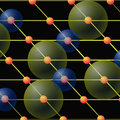
Creating a quantum computer powerful enough to tackle problems we cannot solve with current computers remains a big challenge for quantum physicists. A well-functioning quantum simulator – a specific type of quantum computer – could lead to new discoveries about how the world works at the smallest scales. Quantum scientist Natalia Chepiga from Delft University of Technology has developed a guide on how to upgrade these machines so that they can simulate even more complex quantum systems. The study is now published in Physical Review Letters.
13 February 2024
Scientists develop new technology to identify individual full-length human proteins
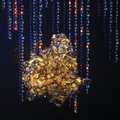
In a study published in Nature Nanotechnology, scientists from Delft University of Technology present a new technique to identify proteins. Proteins carry out essential functions in our cells, while playing a crucial role in diseases like cancer and COVID-19 infection. The researchers identify proteins by reading out the fingerprint, and comparing the fingerprint to patterns from a database. Using this new technology, the researchers can identify individual, intact, full-length proteins, preserving all its information. This can shed light on the mechanisms behind many different diseases and allows earlier diagnosis.
13 February 2024
Unveiling of plaque and mural at Antoni van Leeuwenhoek's birthplace
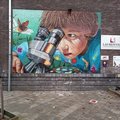
2023 marked the 300th anniversary of Antoni van Leeuwenhoek's death at the age of 91. This was widely commemorated in Delft and beyond last year. TU Delft also remembered the father of microbiology in many ways, including the podcast “A world full of secrets”. Of course, the story of Antoni van Leeuwenhoek deserves a wide audience. That is why last year the Royal Dutch Society for Microbiology (KNVM) commissioned a mural and a plaque on the site of Antoni van Leeuwenhoek's birthplace, now De Oostpoort primary school.
12 February 2024
Robust reactor design to simplify biomolecule production
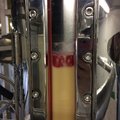
TU Delft and Delft Advanced Biorenewables (DAB) are engaged in a long term development of a low cost and robust integrated bioreactor especially for the production of biofuel precursors as well as chemical and other building blocks that have a common ‘oily’ behaviour of immiscibility with aqueous phases such a fermentation broth. Research of Rita da Costa Basto focused on the important elements of the integrated production process of hydrocarbons by the fermentative route such as coalescence and phase separation. She has defended her PhD thesis on this topic Thursday 11 January 2024 in Delft.
01 February 2024
New network to build the first realistic thermomagnetic generator for waste heat recovery
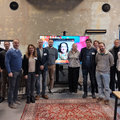
TU Delft leads HEAT4ENERGY, a European consortium, dedicated to develop thermomagnetic devices and novel materials to harvest heat from data centres, food, pulp and paper industries and convert this waste heat to electricity. This project ticks all the boxes: energy transition, decarbonising, low and high power devices for conversion of waste heat to electricity, energy storage, finding alternatives for critical raw materials, developing new materials and most important of all: training of a next generation of European experts.
19 January 2024
Giga-sized nuclide chart
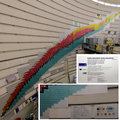
TU Delft Reactor Institute's, part of TU Delft Applied Sciences’ research reactor got a new exterior a few years ago. What cannot be seen from the outside: the inside has now also received a unique covering: the nuclide chart.
17 January 2024
QphoX raises €8m to bring quantum modem technology to market, building towards the quantum internet
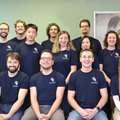
Dutch quantum computing company QphoX has raised an €8 million funding round, the largest investment in a quantum company in the Netherlands to date, in a significant development for the country’s fast-growing quantum industry.
11 January 2024
How living materials from algae can best capture carbon
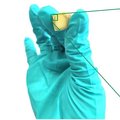
Scientists from TU Delft have found how confined microalgal cells grow optimally in photosynthetic engineered living materials. With the use of light energy, the microalgae convert CO2 from the air into sugars, energy and oxygen for their survival. Such algae-based living materials could be used in a range of applications, from functional objects for CO2 capture, to oxygen sources for biological tissues. The team, led by Marie-Eve Aubin-Tam and Kunal Masania, present their new insights in Advanced Materials.